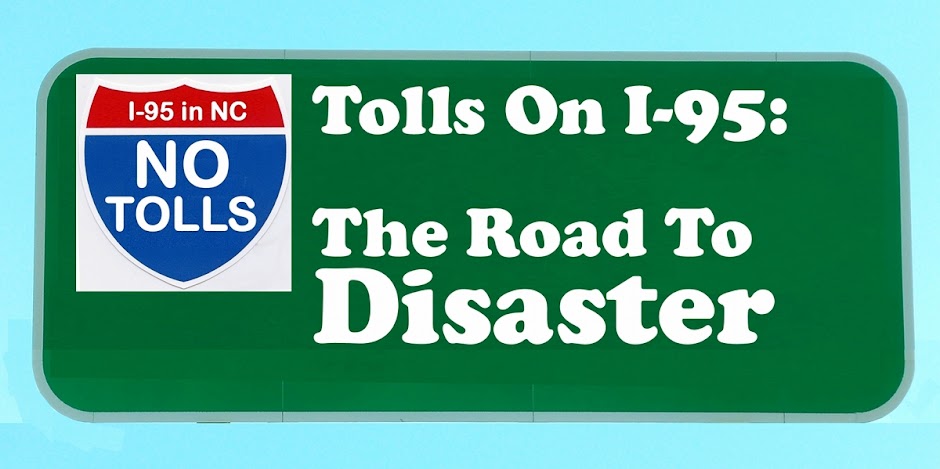Winston-Salem NC Journal October 8, 2012
Editorial: Costly study for the bad idea of toll roads is not needed
While prospects for operation of more North Carolina toll roads are rightly dimming, the N.C. Department of Transportation is about to waste another $1.6 million assessing the economic impact of tolls on Interstate 95.
DOT should forget that idea. Paying for the $4.4 billion upgrading of the major north-south route through Eastern North Carolina with tolls won’t work and has very little political support.
North Carolina now has only one toll road, an expressway that skirts around Raleigh to the south. But five other toll projects under DOT development — including I-95 — face enormous hurdles in either the courts or the Republican-dominated General Assembly, according to an assessment by The News and Observer.
The Journal editorial board has repeated its arguments against toll roads many times, but our primary opposition lies in the unfairness of double taxation. When motorists pay tolls on the Triangle Expressway, they are paying their second tax for driving on a state road. First they paid their gas tax, then the toll. Motorists on every other road in the state pay only once.
Maybe nowhere in the state is the idea of double taxation more unfair than on I-95, which cuts through the state’s poorest region. Workers who must use I-95 to get to work would be hit with big tolls, and many of those jobs don’t pay all that well in the first place. DOT has ideas for reducing the tolls on commuters, but those ideas don’t solve the problem.
The unfairness extends to businesses, too. Those in the eastern corridor would have to pay tolls for their deliveries and transports while those in other parts of the state would not. That’s not a recipe for bringing economic development to a wide swath of the state that desperately needs it.
In announcing the study, DOT said it wanted to get a better idea of how tolls would impact business. We can save the state right here with the obvious answer: Tolls would hurt.
DOT should save the $1.6 million and drop this whole notion of toll roads, too.



